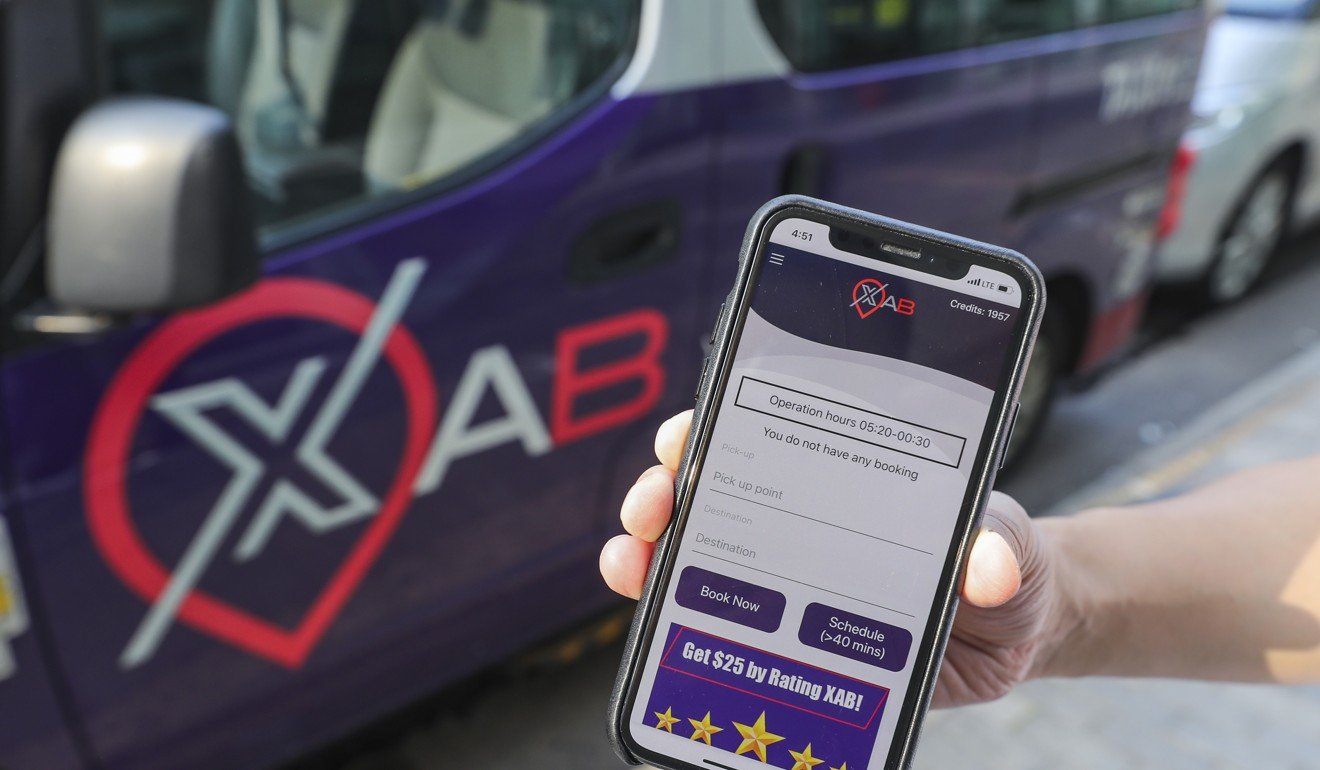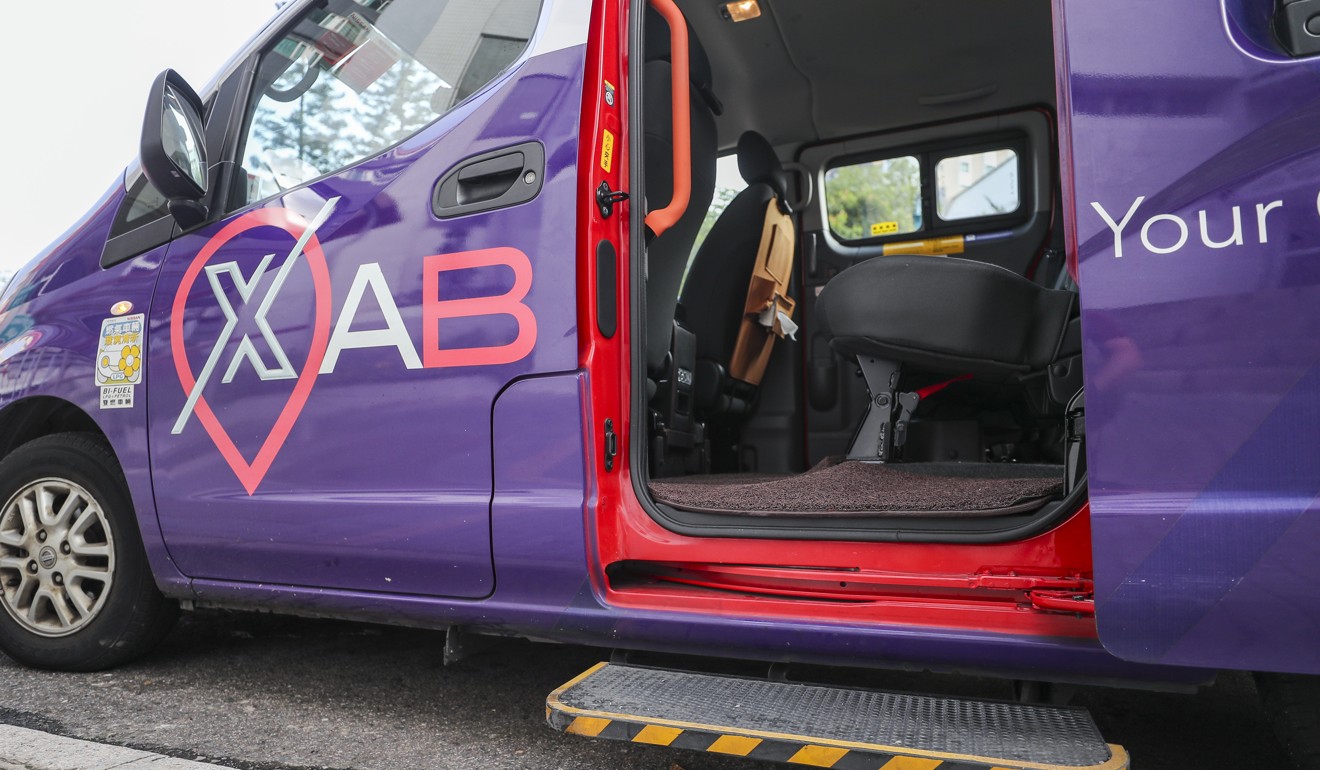
The duo behind Hong Kong’s purple XAB taxis hoping to revamp a notorious industry
- App launched last May is run by two friends who own fleet of 15 taxis and employ 30 drivers trained in customer service
- They hope to revolutionise a sector plagued by bad cabby behaviour
When former investment trader Derek Wai first heard about his friend Peter Yung’s grand idea of breaking into the city’s old-fashioned and notorious taxi trade with a new ride-hailing app in 2016, his eyes sparkled with excitement.
Despite knowing nothing about the inner workings of the taxi industry, the 34-year-old saw it as a good opportunity to carve out a niche in a market plagued by a bad reputation.
With a capital of more than HK$10 million (US$1.3 million) raised by the pair from six investors, they launched taxi-hailing app XAB in May last year, starting with a humble fleet of five taxis and 10 drivers, to its current 15 vehicles and 30 cabbies.
Taxi groups try to torpedo plan for luxury cabs in Hong Kong
The antics of Hong Kong’s taxi drivers, such as overcharging, taking indirect routes and cherry-picking passengers or refusing fares, have been a common subject of ire among Wai’s friends, and he wanted to see if he could change the tide.
“My first reaction was that this business idea was really interesting and challenging. I had never heard of someone wanting to break into the taxi industry, one that is so old-fashioned, self-protective and unregulated. It’s hard for outsiders to have a piece of the action,” Wai recalled.
I had never heard of someone wanting to break into the taxi industry, one that is so old-fashioned, self-protective and unregulated
But riding on the expertise of Yung, also 34, a son of a taxi firm owner with a fleet of more than 70 vehicles, Wai believed their app service could be lucrative and revive the outdated sector.
Wai noted that their edge was an insistence on managing their own fleet of taxis, hiring and training a team of drivers to ensure service quality, even if it meant having to cough up a large investment.
“The taxi industry is a big market in Hong Kong. I reckon that Hongkongers are still not used to hailing a taxi via an app, so I believe there is a great potential for developing this business,” Wai said.

Yung, summoned by his father in 2012 to help out with the family business after working in the property and telecoms industry, said the new venture was inspired by his growing desire to transform the city’s taxi sector with a new way of thinking.
“I hope to set up a new brand that breaks away from the old business model that relies on renting out taxis to cabbies. With our new system, we hope to do away with bad practices in the industry,” he said.
With our new system, we hope to do away with bad practices in the industry
The pair immediately clicked, with Wai using his business networks to find other investors and Yung dealing with operational matters such as hiring drivers, purchasing new taxis, acquiring licences and developing the app.
The pair’s taxis, coloured in purple, are all equipped with an extra-large compartment and can accommodate a wheelchair with two passengers.

According to the two founders, hiring their own uniformed cabbies was what set XAB apart from other booking apps on the market such as the newly launched, industry-wide eTaxi.
“We are the only taxi app firm that employs its own team of drivers. They have all received customer service training. This is the only way to ensure service quality,” Yung said.
Three ride-hailing apps put to the test – which came out on top?
“For the other taxi apps, either they rent out their taxis for other cabbies to run or just act as a platform for cabbies to pick up orders. Either way fails to ensure quality service as cabbies are still their own bosses.”
XAB’s drivers are paid about HK$20,000 monthly, and Yung said this solved the problem of drivers refusing fares. Bookings can also be tailor-made.
Just through word of mouth alone, their app has already attracted more than 10,000 users.
“We’ll keep expanding our fleet and we hope to break even by the end of this year,” Yung said.

